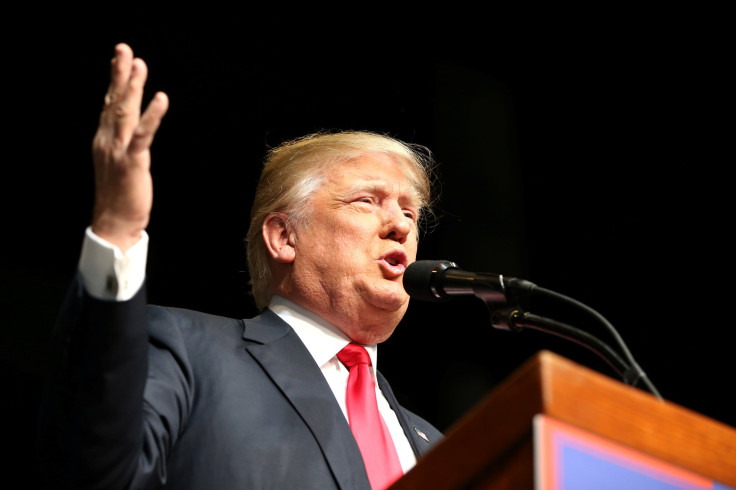Donald Trump's Remarks On Taxes, Debt Put Him At Odds With Wall Street Republicans

Even as Donald Trump reaches out to big money donors as part of his general election strategy, he keeps making statements that seem practically designed to antagonize rich Republicans. In the past week alone, he has suggested that taxes on the rich might go up under his aegis, called for bondholders to "take a hit" when Puerto Rico restructures its debt, and described himself as "the king of debt" while discussing the federal government's own obligations.
The presumptive Republican nominee has since clarified some of those remarks. On Monday, he said he would not in fact raise taxes on the rich, but might accept a smaller cut than the one in his proposal in order to secure a deal with Congress. But some of the damage from his prior statements is already done.
Alarmed by Trump's views, conservative Wall Street donors have already begun to drift toward likely Democratic nominee Hillary Clinton. A recent Wall Street Journal analysis found that Clinton received a little more than half of all donations from Wall Street given in the month of March, the most recent month for which presidential candidates have filed campaign finance disclosure forms.
Wade Black, chief operating officer for the New York financial firm Scarsdale Equities LLC, told International Business times that he thinks a lot of Wall Street money will go to down-ballot Republicans instead of to Trump.
"I think they're pragmatists in the long run," he said of conservative donors in the financial industry. "They'd probably rather have Hillary in the White House and a Republican Congress to maintain the status quo."
Trump is more unpredictable. His recent claim that he could rack up U.S. debt and then negotiate his way out of it in the event of a crisis betrays "a profound lack of understanding when it comes to economics," said Black. And Clinton has a demonstrated history of friendly relations with some major financial actors, something for which Democratic opponent Bernie Sanders has repeatedly hammered her throughout the primary.
Clinton has faced particularly sharp criticism from Sanders and others for taking high-paying speaking engagements at Wall Street institutions like Goldman Sachs.
"She has a track record of being more friendly to Wall Street than Obama was," said Black, who supports Sanders. "That was a clear point of difference in 2008."
If Wall Street giving tilts toward Clinton over Trump in this election cycle, it would mean a sharp break from the trend that defined the Obama years. For years prior to President Barack Obama's election, the financial sector gave to both parties in roughly equal proportions, with Democrats actually receiving slightly more throughout the latter Bush years, according to the Center for Responsive Politics. But after Obama was elected, Republicans started receiving slightly more than Democrats from Wall Street. During the 2012 election, Wall Street's campaign contributions became starkly partisan, with 79 percent of all donations going into Republican coffers.
It's too early to tell whether Trump's rise and Clinton's relative friendliness to the financial sector will invert that trend. The Republican candidate has made some significant overtures to Wall Street; last week, he named hedge fund manager Steve Mnuchin as his national finance chair. And his recent remarks about taxes don't appear to have alienated the premier anti-tax lobbying group in Washington, Americans for Tax Reform. When asked by IBT, the group passed along a statement from founder and president Grover Norquist expressing his confidence that Trump would not raise taxes on anyone.
"Trump's tax cut would be a tax cut for every American," said Norquist. "Because Trump takes the top personal rate from 39.6 percent to 25 percent and the corporate rate from 35 percent to 15 percent, there is no way anyone would see an actual tax increase."
© Copyright IBTimes 2024. All rights reserved.






















